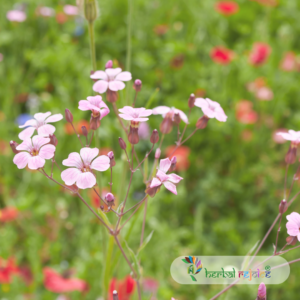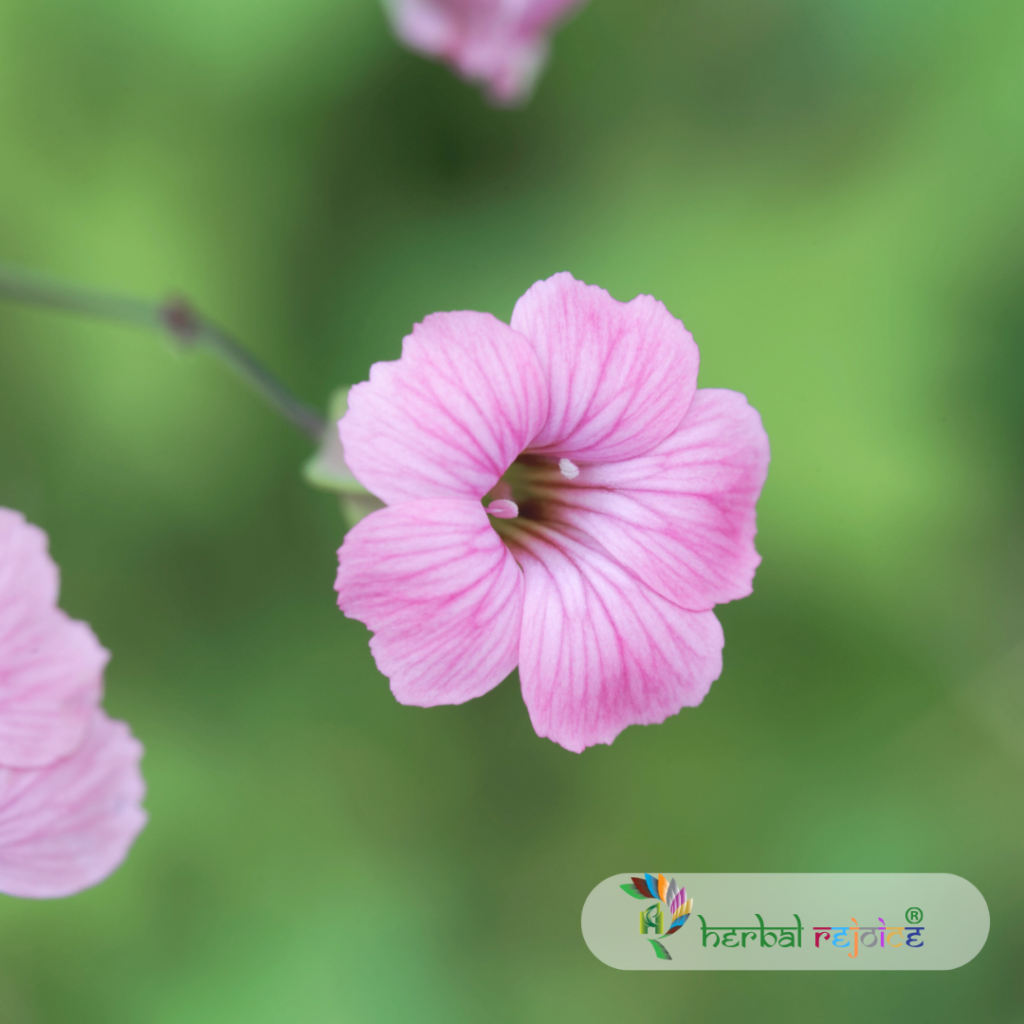Introduction
Vaccaria pyramidata (L.) Medik., also known as Soapwort or Cow Herb, is a medicinal plant belonging to the Caryophyllaceae family. This herbaceous plant can be found throughout India, commonly as a weed. In traditional folk medicine, it is referred to as Musna or Saabuni.
Therauptic Properties
The roots of Vaccaria pyramidata have been utilized for their therapeutic properties. They have been traditionally used to treat cough, asthma, and other respiratory disorders. Additionally, the roots are believed to be effective in managing jaundice, liver, and spleen diseases by increasing bile flow. Furthermore, the mucilaginous sap extracted from the plant has been applied topically to alleviate symptoms of scabies.
Chemical Constituents
Scientific research has revealed the presence of various active compounds in Vaccaria pyramidata. Saponins, found in the root, have demonstrated haemolytic activity. Other important compounds include lanostenol, stigmasterol, beta-sitosterol, and diosgenin, which have been successfully isolated from the plant. Furthermore, xanthones like vaccaxanthone and sapxanthone, along with an oligosaccharide called vaccarose, have also been identified in Vaccaria pyramidata.

Health Benefits
The medicinal properties of Vaccaria pyramidata make it a valuable natural remedy for respiratory issues and liver-related ailments. Its effectiveness in cough and asthma treatment can potentially be attributed to the presence of saponins and other bioactive compounds. The increase in bile flow caused by the root’s consumption may aid in the management of jaundice, liver, and spleen diseases. Moreover, the mucilaginous sap can be a useful topical solution for relieving scabies symptoms.
As an easily accessible plant, Vaccaria pyramidata has gained attention for its potential therapeutic benefits. Incorporating this herb into traditional and alternative medicine practices may offer a natural approach to respiratory and liver health. Further scientific research is warranted to explore its full potential and understand the mechanisms behind its medicinal effects.
Conclusion
In conclusion, Vaccaria pyramidata, commonly known as Soapwort or Cow Herb, is a medicinal plant with various applications in traditional medicine. Its roots have been used to treat respiratory disorders, jaundice, liver and spleen diseases, while the sap is used topically for scabies. The plant contains active compounds such as saponins, lanostenol, stigmasterol, beta-sitosterol, diosgenin, xanthones, and oligosaccharides. These compounds contribute to its therapeutic properties and make it a valuable natural remedy. Incorporating Vaccaria pyramidata into healthcare practices may offer a holistic approach to certain health conditions; however, further research is needed to fully understand its potential.
Frequently Asked Questions
What is Vaccaria pyramidata commonly known as?
It is commonly known as Soapwort or Cow Herb and is referred to as Musna or Saabuni in traditional folk medicine.
Which family does Vaccaria pyramidata belong to?
Vaccaria pyramidata belongs to the Caryophyllaceae family.
Where can Vaccaria pyramidata be found?
It is commonly found throughout India, often growing as a weed.
What are the therapeutic properties of Vaccaria pyramidata?
The roots of Vaccaria pyramidata have been traditionally used to treat cough, asthma, and respiratory disorders. It is also believed to help manage jaundice, liver, and spleen diseases by increasing bile flow. Additionally, the mucilaginous sap has been used topically to alleviate scabies symptoms.
What are the chemical constituents found in Vaccaria pyramidata?
The plant contains several bioactive compounds, including saponins, which demonstrate haemolytic activity, lanostenol, stigmasterol, beta-sitosterol, diosgenin, xanthones such as vaccaxanthone and sapxanthone, and an oligosaccharide known as vaccarose.


